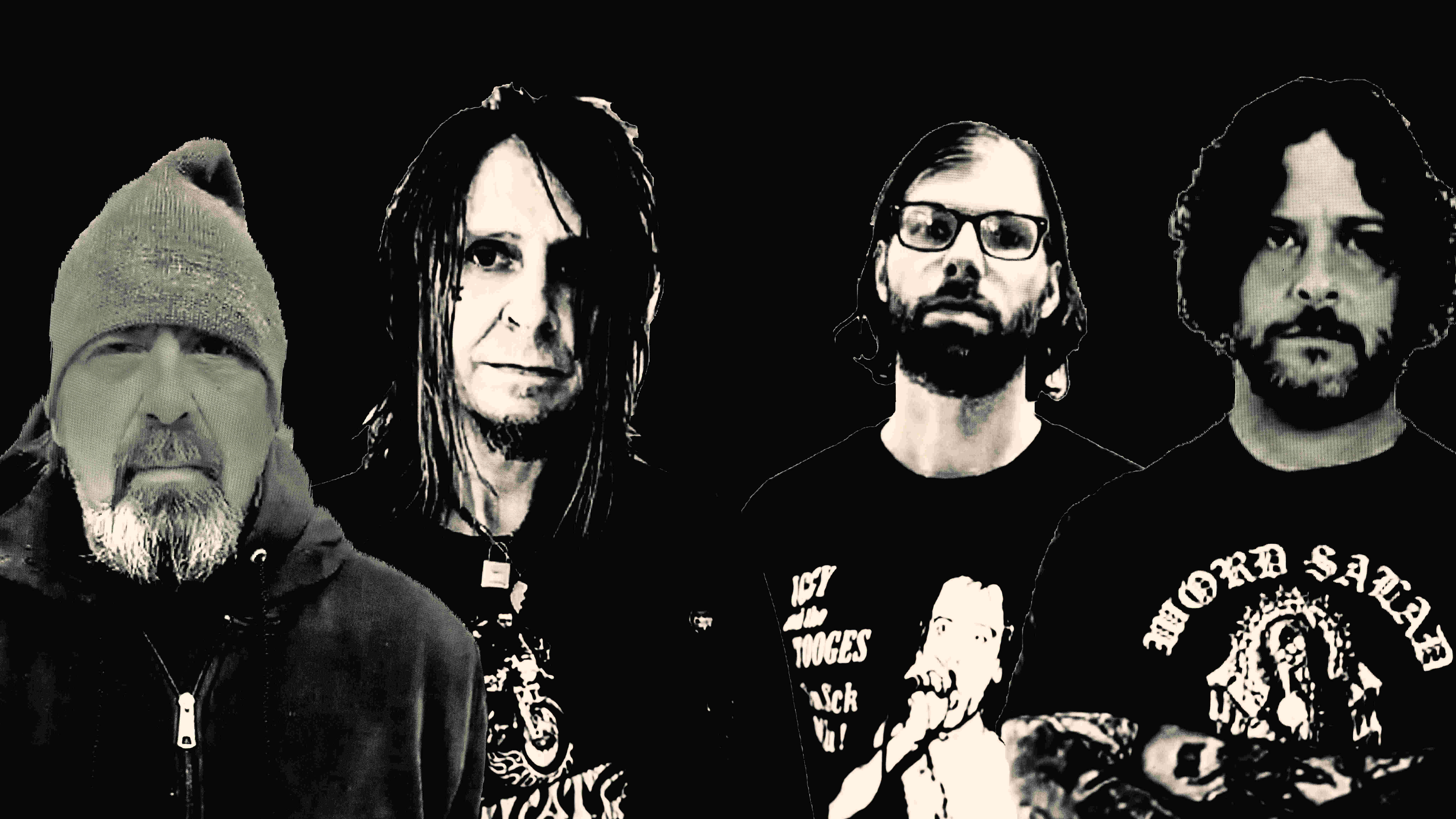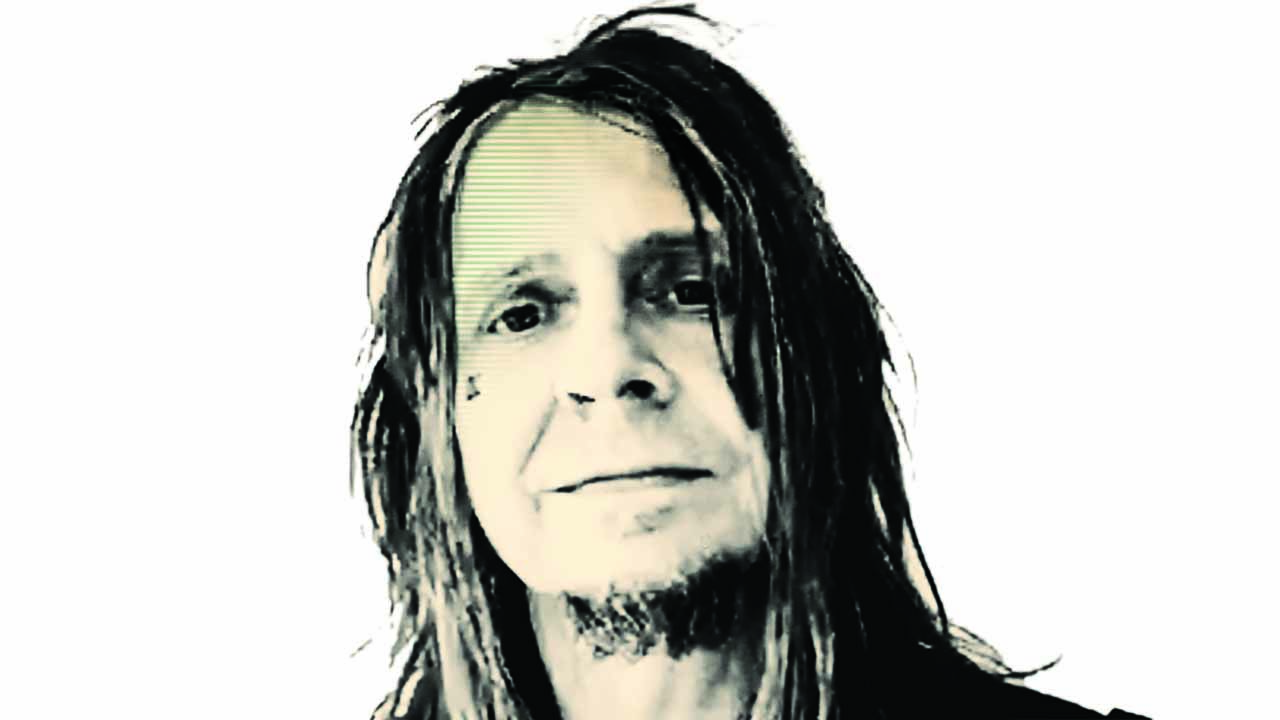Cockroaches, so the legend goes, would be the only living thing to survive a nuclear apocalypse, scuttling up from the rubble while whatever’s left of humanity continues to cook on the pavement. Somehow, we can imagine Mike IX Williams, frontman of legendary New Orleans sludge band Eyehategod, crawling out alongside them to survey the destruction. He’s managed to push through everything life’s thrown at him, from the death of friends and family members through to liver failure, heroin addiction, jail time and natural disasters.
Speaking from his NOLA home, Mike spools information out a little at a time, genially and with disarming candour. Memories and anecdotes that would be crushingly painful for most people to recount are carelessly discarded, and the frontman views his history of bad choices and self-sabotage with a wry, dark humour.
While synonymous with New Orleans, Mike was raised some 800 miles away in High Point, North Carolina – known as ‘the furniture capital of the world’. This short chapter of his life came to a tragic close when the loss of three family members left him in the care of an older brother. “My mom was in a car accident when I was like nine years old,” says Mike. “Two years later my dad died, I think of heart failure. Then one of my brothers died by suicide. He was getting involved in some kind of criminal activity – no one would really tell me.”
The move to NOLA as the 70s drew to a close was instigated by Mike’s older brother who’d always loved the city, and while the cause of the relocation was traumatic, the change of scenery at least seemed positive. “I was from a very small place so there was definitely a sense of having to navigate this huge city,” says Mike. “But it was also exciting, I felt more free. Even at that age, I kinda felt it was what I needed and had been looking for.”
NOLA also coughed up an intoxicating new music scene. A young Kiss adept, Mike discovered punk while scouring music magazines featuring his heroes. Initially switched on by the extreme aesthetics of bands like the Sex Pistols, the Ramones and The Damned, his interest caught fire when he heard the actual music. “I knew right then and there that this was it,” he says.
It certainly didn’t hurt that this brash, angry music raised the hackles of his older brother. “I should actually give my brother credit, because he took me to see my first shows – not because he was a fan, but because he worked this club called Jed’s. There was a local band called The Normals, and he’d take me to see them – that’s when people were still pogoing and had safety pins in their cheeks,” he remembers.
If this is all starting to sound rather too cheerful, it was also a difficult time for the Williams brothers’ relationship, with rebellion and revolt playing an increasing part in Mike’s life. “I was doing shitty things,” sighs Mike. “I was skipping school, failing on purpose, hanging out with the bad kids. My brother had never been in this situation before, so I do feel bad for him. He put me into a boys’ home. I didn’t like it at first, but I actually loved it after a while because I made a lot of friends there. It was all kids like me – juvenile delinquents. The boys’ home actually kinda helped me in terms of social skills, but it also taught me how to be a better shoplifter.”

After a couple of years in the home, Mike moved back in with his older brother, but rebellion was a constant theme – even down to faking teachers’ notes so he could play gigs with his first punk band, Teenage Waste. “I ended up being like, ‘Fuck it, I’m not coming back’ by the time I was 16,” says Mike. “Most of the time I had friends who would let me stay at their house, but sometimes I was on the streets.”
Drugs, like music, helped fill a void and blot out the shrill whine of reality. NOLA’s party town atmosphere turned Mike onto booze and weed at an early age, with LSD and ecstasy soon following. It wasn’t until Eyehategod was well underway, however, that things took a darker turn. “When I moved to New York in the early 90s, heroin was everywhere, so of course I wanted to try it,” he says. “It was partly me thinking, ‘Yeah, I’ve got this under control’ but at the same time not really caring what happened. Not wanting to die – that probably came later in my life – but just not worrying about tomorrow.”
In a sick twist, it was the devastating horror of 2005’s Hurricane Katrina that ultimately helped Mike beat his decade-long addiction. Relatively unaffected by the storm itself, his Lower Garden District neighbourhood became a warzone when residents of harder-hit neighbourhoods came to take what they needed to survive. “There was a dead body round the corner from me,” recalls Mike. “I saw someone pulling an ATM down the street, chained to the bumper of their car. Things got pretty hectic.”
Leaving a situation that he credits with giving him PTSD, Mike was arrested on drug charges a few days later in nearby Morgan City. Thrown in jail and with no access to the methadone with which he’d been trying to wean himself off heroin, Mike had no choice but to go cold turkey. “The people in jail could care less,” is his stark response, when asked whether anyone helped him through his withdrawal. “A lot of people that work in jails are sadistic,” he spits. “I think they like to hurt other people and like to see other people’s misery.”
While perhaps more stable, the years post-Katrina and post-addiction have not been without their traumas. Loss seems ever-present, with casualties including Eyehategod drummer Joey LaCaze in 2013, Mike’s former Suffocation By Filth bandmate Champ LaRocca in 2019, and four good friends in 2020 alone. Perhaps steeled against tragedy due to early experiences of loss, Mike views himself as “pragmatic” when it comes to facing down the void that awaits us all. “I think it’s definitely something in my psyche that helps protect me,” he says. “I don’t think people should be scared of death, it’s just something that happens.”
Mike, of course, has had his own brushes with the reaper – notably in 2016 when he required life-saving surgery to replace a liver destroyed by years of hard living. Despite being a painful, debilitating, uncertain time, this experience was not without rays of light. Facing seemingly insurmountable medical bills, Mike’s wife launched a crowdfunding campaign to pay for his treatment. “I didn’t want to do anything like that,” Mike admits. “I wasn’t even telling anyone I was sick – I didn’t see the point.”
Being self-sufficient and nihilistic by nature, it’s unsurprising that Mike was reticent, but he now buzzes when recalling the groundswell of support that helped him recover. “All the people that wrote me, and donated, that was amazing and overwhelming. It kinda gives you a little hope, and makes you realise it’s not so bad being alive.”
Anyone worried that these sentiments might suggest Mike has mellowed just needs to spend five minutes in a room with A History Of Nomadic Behavior – Eyehategod’s scab-encrusted sixth album. The band’s deadly, Sabbath-blasted hardcore is as unsettling as ever, shining its black light on the stained cloth of humanity. The future, as Mike perceives it, revolves around continuing to survive, and is irrevocably entwined with music, art and a quest for constant creative forward motion.
“There’s things out there that I don’t even know about yet that I want to do,” he chuckles. “I’m just trying to keep busy no matter what. Eyehategod’s got some ideas for the next thing if we can just get it together. It might take us a year or three to get that thing going, but at least we have the idea. There’s a lot more to do.”
Published in Metal Hammer #348
